SYSMH Huadu Campus completes its first case of Da Vinci Robotic Assisted Surgery
On February 24, 2025, Sun Yat-sen Memorial Hospital's Huadu Campus introduced the region’s first fourth-generation Da Vinci Surgical System. Since its introduction, the system has successfully completed 10 complex procedures.
Prof. Huang Hai and his urology team successfully performed Huadu’s first zero-ischemia robot-assisted partial nephrectomy (RAPN) using the Da Vinci system. The patient, Mr. Li, had a 4cm kidney tumor near critical blood vessels, posing a high risk with traditional surgery. Utilizing the robot’s 10x 3D magnification and precision instruments, Prof. Huang’s team removed the tumor completely in just 35 minutes with only 10ml blood loss. Mr. Li was walking by the next day. "It’s not just smaller scars—the robot saved my kidney function," he said.
Prof. Huang Hai highlighted that the Urology Department of Huadu Campus—a national key clinical specialty, has established an integrated platform combining robotics, laparoscopy, endoscopy, and day surgery, with ambitions to become a regional hub for Da Vinci training, 5G remote surgery, and community outreach. Through technology sharing, staff exchanges, and standardized care, the department aims to strengthen collaboration with primary healthcare providers, enabling patients to access high-level treatment locally.
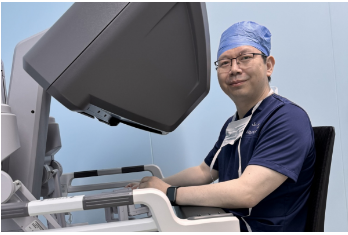
Prof. Huang Hai Performs Robotic Surgery at Huadu Campus
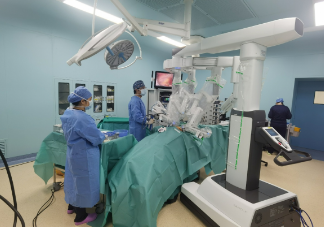
In the operating theater
On March 27th, the Department of Otolaryngology’s third inpatient ward at Huadu Campus officially commenced operations. On the same day, Prof. Huang Xiaoming and Liang Faya have successfully performed two groundbreaking robotic surgeries at Huadu Campus, advancing minimally invasive techniques in head and neck oncology. In the first case, they utilized the fourth-generation Da Vinci surgical robot to treat a patient with bilateral papillary thyroid carcinoma accompanied by lateral cervical lymph node metastasis. The system’s 3D high-definition vision and 7-degree-of-freedom bionic instruments enabled complete tumor removal while preserving critical nerves and avoiding a 15-20cm neck scar. In another case, Prof. Liang performed a transoral robotic resection for early-stage oropharyngeal cancer, eliminating the tumor without traditional open surgery’s trauma to facial structures and preserving the patient’s swallowing and speech functions post-surgery. Both procedures achieved radical tumor eradication while maintaining cosmetic and functional outcomes.
Prof. Chen Suijun, Director of Otolaryngology, reported the department has treated 38 patients for head-neck tumors, vocal cord paralysis, and hearing disorders and nasal disorders. The team has pioneered several advanced techniques, including robotic thyroid cancer surgery, transoral robotic-assisted oropharyngeal cancer resection, endoscopic thyroid cancer surgery, vocal rehabilitation with injection laryngoplasty for unilateral vocal cord paralysis, endoscopic anterior skull base tumor resection, 3D exoscopic pediatric cochlear implantation with intraoperative auditory electrophysiological monitoring, and adult cochlear implantation.
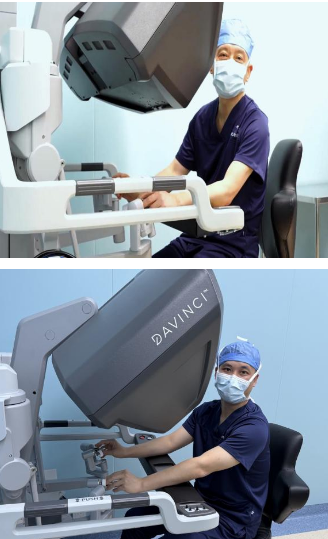
Prof. Huang Xiaoming and Prof. Liang Faya perform robotic surgeries at Huadu Campus.
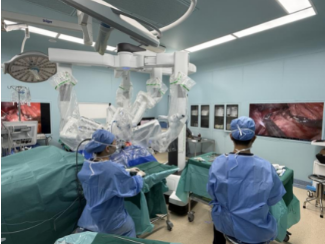
Da Vinci Robot Performs First Thyroid Cancer Operation
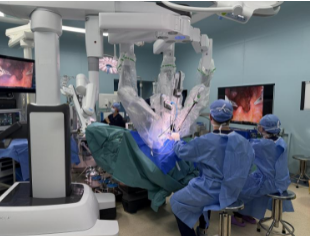
Da Vinci Robot Assists in First Transoral Oropharyngeal Carcinoma Resection


